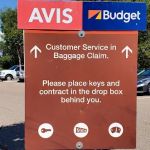
- typical-credit-card-hold-by-dollar
- debit-card-vs-credit-card-hold
- why-does-dollar-place-a-hold
- how-long-does-hold-last
- real-experience-surprise-hold
- manage-hold-expectations
1. Typical Credit Card Hold by Dollar
If you're renting a car in the U.S. from Dollar Car Rental, expect a hold of $200 up to $200 on your credit card—this is in addition to your estimated rental fee, held as a security deposit while you’re on the road :contentReference[oaicite:0]{index=0}. :contentReference[oaicite:1]{index=1}
2. Debit Card vs Credit Card Hold
2.1 Credit Card Rentals
With a credit card, Dollar typically places a hold up to $200 in addition to your rental cost. This hold is temporary and frees up after vehicle return and final billing :contentReference[oaicite:2]{index=2}.
2.2 Debit Card Rentals
If you use a debit card, Dollar places a significantly higher hold—often $500—often paired with a credit check at pick‑up to assess risk. That amount may be higher depending on location or vehicle type :contentReference[oaicite:3]{index=3}.
3. Why Does Dollar Place a Hold?
The authorization hold is not a charge—it’s a frozen amount that secures the car rental company against unexpected costs like damage, late return fees, unpaid tolls, or refueling charges :contentReference[oaicite:4]{index=4}. :contentReference[oaicite:5]{index=5}
4. How Long Does the Hold Last?
After returning the vehicle without incident, the hold is released. For credit cards, funds typically become available within 1 business day, while debit card holds can take up to 5–10 business days, or in rare cases up to two weeks depending on bank policies :contentReference[oaicite:6]{index=6}.
5. Real Experience: Surprise Hold Explained
A traveler shared how Avis placed a massive $10,000 hold after declining CDW coverage in Panama—an extreme example of how dropping rental protections can spike hold amounts unexpectedly. While not common at Dollar, it highlights the importance of reading fine‑print and asking what hold to expect at your pickup location :contentReference[oaicite:7]{index=7}.
6. How to Manage Hold Expectations
6.1 Ask Upfront
When booking, confirm the exact rental hold for your location and vehicle class. Ask whether you're paying with credit or debit, as the hold amount can vary significantly.
6.2 Prefer Credit Over Debit
A credit card generally yields a smaller hold, faster release, and includes extra rental insurance protections—making it a better choice vs a debit card rental :contentReference[oaicite:8]{index=8}.
6.3 Monitor Your Account
Check your online banking after drop‑off to ensure the hold has been removed. If delayed beyond 10 business days, reach out to Dollar and your bank.
7. Why It Matters with Carvel Car Rental
At Carvel Car Rental, we provide clear, location‑specific guidance on credit and debit card policies, typical hold amounts, and payment expectations. Our transparent information helps renters avoid surprises, plan ahead, and enjoy a smoother rental experience.







 Hertz Car Rental - San Diego - Pacific Beach3.0 (99 reviews)
Hertz Car Rental - San Diego - Pacific Beach3.0 (99 reviews) Hertz Car Rental - Gahanna - North Stygler Hle3.0 (54 reviews)
Hertz Car Rental - Gahanna - North Stygler Hle3.0 (54 reviews) Avis Car Rental3.0 (171 reviews)
Avis Car Rental3.0 (171 reviews) Hertz Car Rental - Dallas - Dallas Fort Worth International Airport (DFW)3.0 (2386 reviews)
Hertz Car Rental - Dallas - Dallas Fort Worth International Airport (DFW)3.0 (2386 reviews) Aventi Exotic Car Rental0.0 (0 reviews)
Aventi Exotic Car Rental0.0 (0 reviews) Budget Car Rental3.0 (41 reviews)
Budget Car Rental3.0 (41 reviews) Do I Need Liability Insurance for Car Rental? Understanding Your Options
Do I Need Liability Insurance for Car Rental? Understanding Your Options Do All Car Rental Companies Require a Deposit? What You Need to Know
Do All Car Rental Companies Require a Deposit? What You Need to Know How Uber Car Rental Works: A Convenient Way to Rent a Car
How Uber Car Rental Works: A Convenient Way to Rent a Car Do Car Rental Companies Charge Per Mile? Everything You Need to Know
Do Car Rental Companies Charge Per Mile? Everything You Need to Know How to Find the Cheapest Car Rental in the US: Insider Strategies
How to Find the Cheapest Car Rental in the US: Insider Strategies Can You Take a Car Rental to Mexico? What You Need to Know
Can You Take a Car Rental to Mexico? What You Need to Know